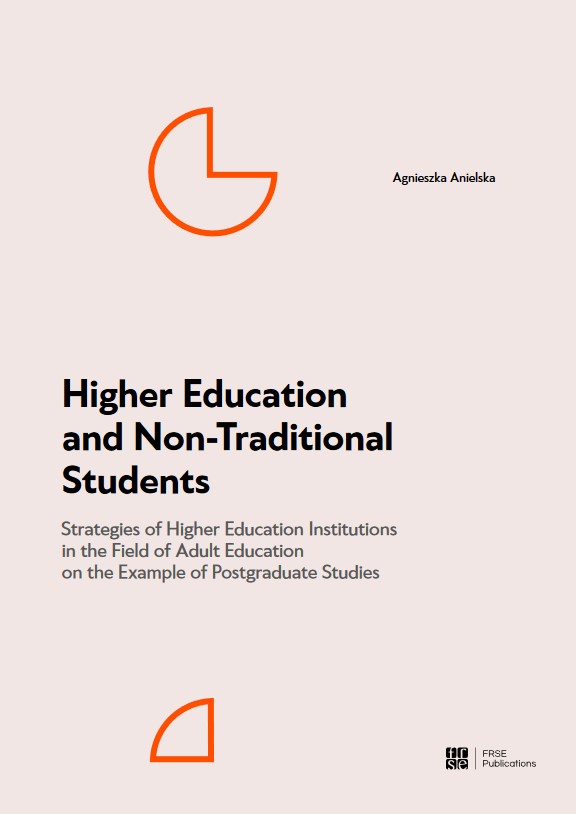Higher Education and Non-Traditional Students. Strategies of Higher Education Institutions in the Field of Adult Education on the Example of Postgraduate Studies.
Higher Education and Non-Traditional Students. Strategies of Higher Education Institutions in the Field of Adult Education on the Example of Postgraduate Studies.
Author(s): Agnieszka Anielska
Subject(s): Social Sciences, Education
Published by: Fundacja Rozwoju Systemu Edukacji
Keywords: lifelong learning; adult education; postgraduate studies
Summary/Abstract: The dynamics of the labour market and new career models have meant that lifelong learning has grown into a strategic challenge in the field of European education. In 2000, it was included in the Lisbon strategy, which is considered one of the pillars of the European Union’s economic development. The role of higher education in this proces was also noticed as the year 2009 saw the establishment of total education as one of the priorities of the European Higher Education Area (EHEA) which also meant the implementation of lifelong learning at the level of individual EU countries’ policies. The subject of my interest and the purpose of research constituting the core of this work was to verify whether and to what extent various types of Polish universities are ready to put the ideas of lifelong learning i nto p ractice. In particular, I intended to find out whether the preferences of postgraduate students, which are visible in statistics and point to the popularity of non-public universities, are the result of thoughtful and purposeful activities undertaken by such universities and how the strategies of various types of these entities differ from each other. I assumed that this knowledge would make it possible to forecast market’s growth, and that interested representatives of universities and persons shaping educational policy at the national level would find it useful from the perspective of both strategic and operational activities. I intended to reconstruct actual strategies “in action”, not just formal declarations stated in strategic documents. Therefore, the analysis of the strategies was only the starting point for further research. I proposed the resource dependence theory as the theoretical framework for analysing research results. It considers organisations in the context of their environment, emphasises their role and focuses on relations and interactions between the organisations and the environment.
- Print-ISBN-13: 978-83-66515-88-8
- Page Count: 260
- Publication Year: 2022
- Language: English
- Table of Content
- eBook-PDF

